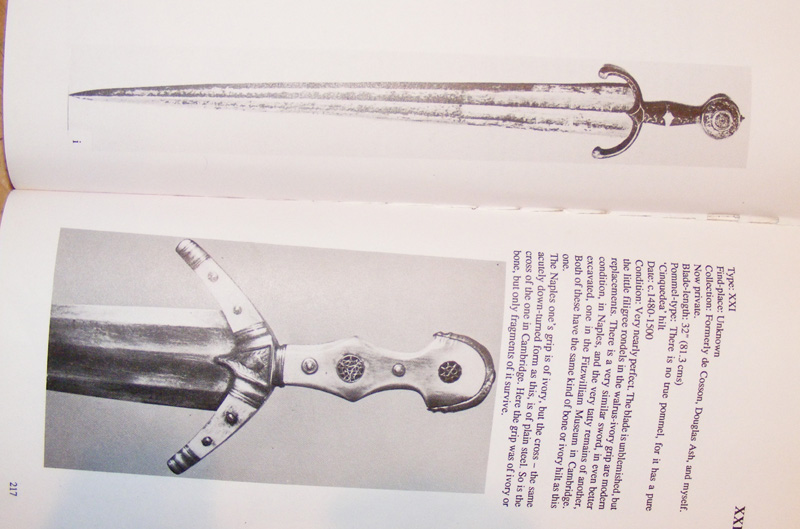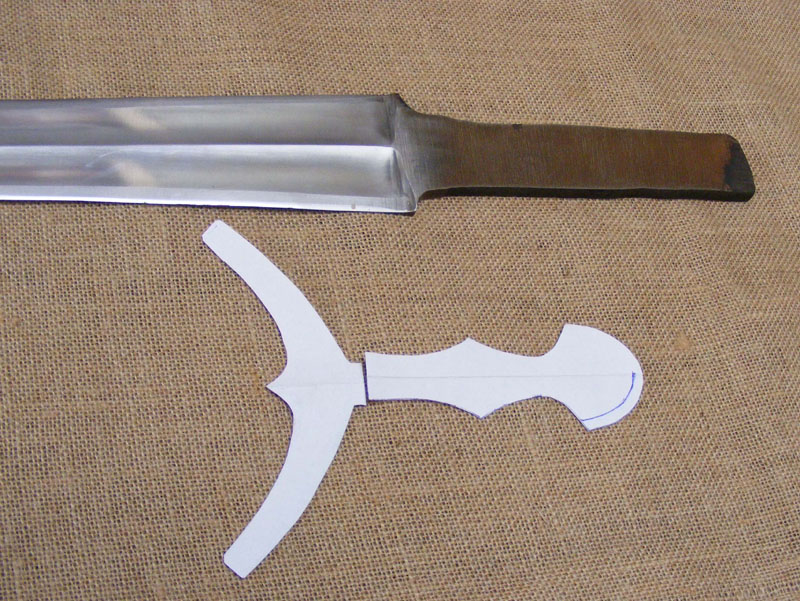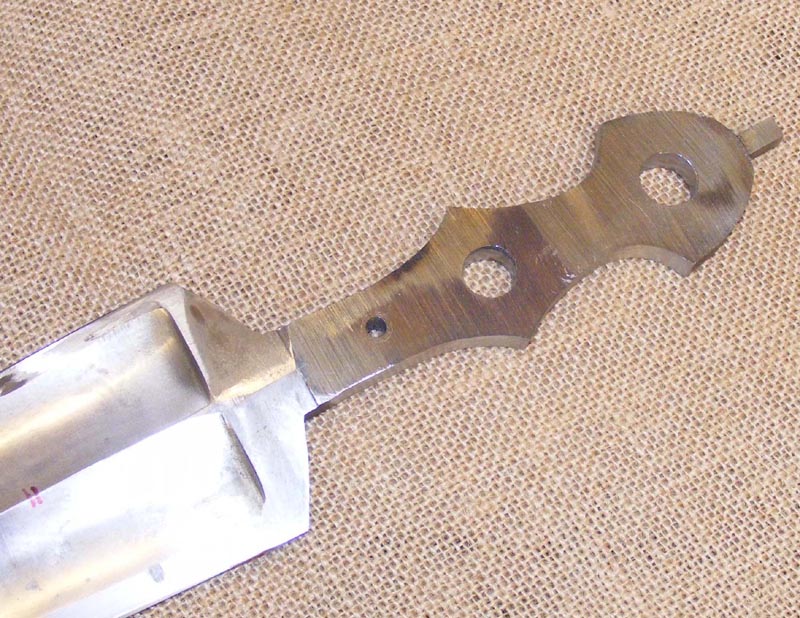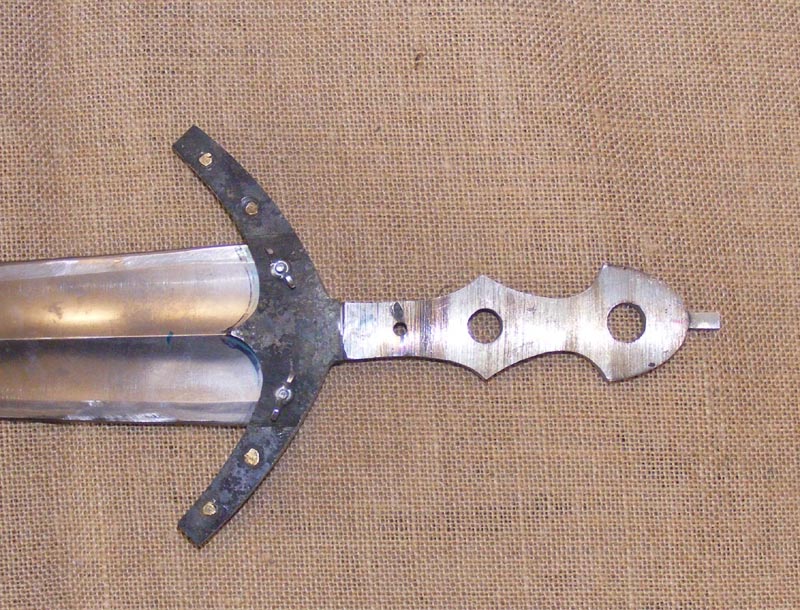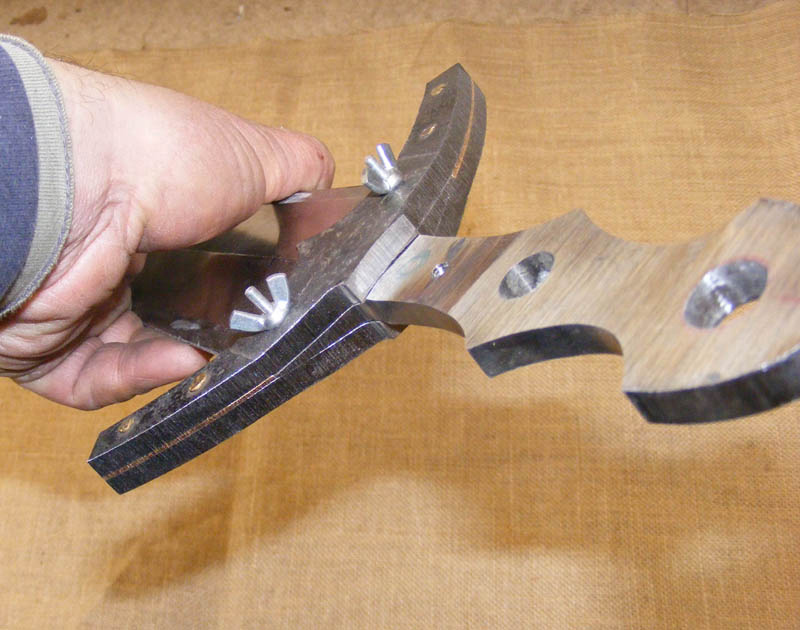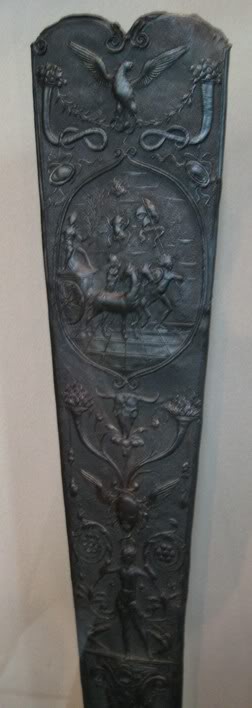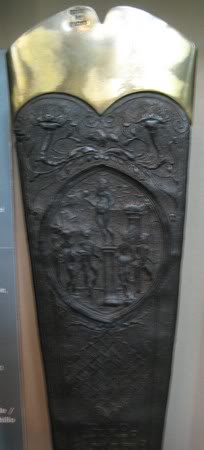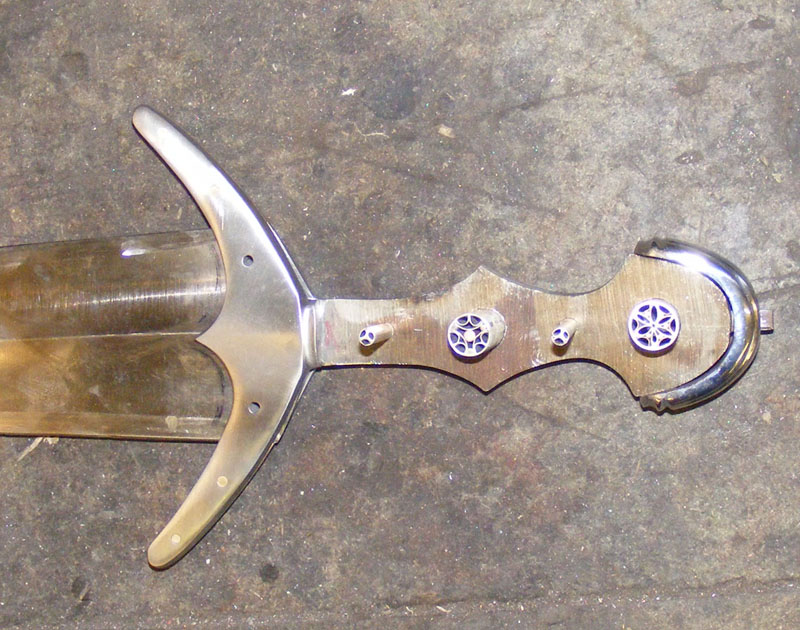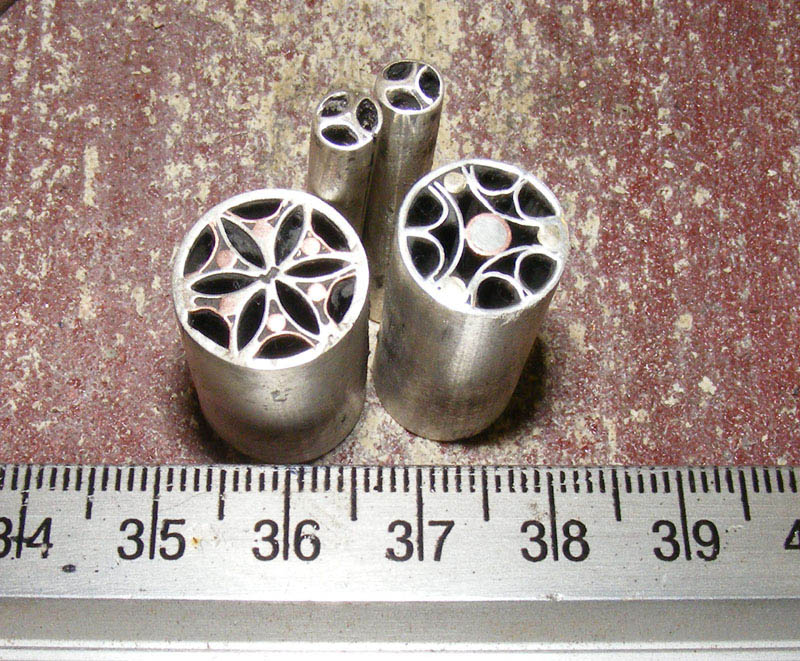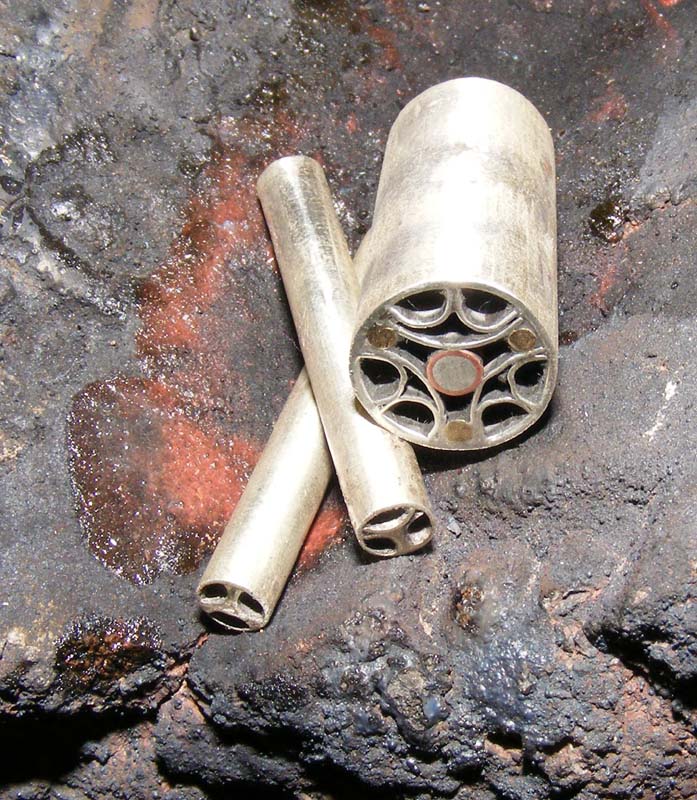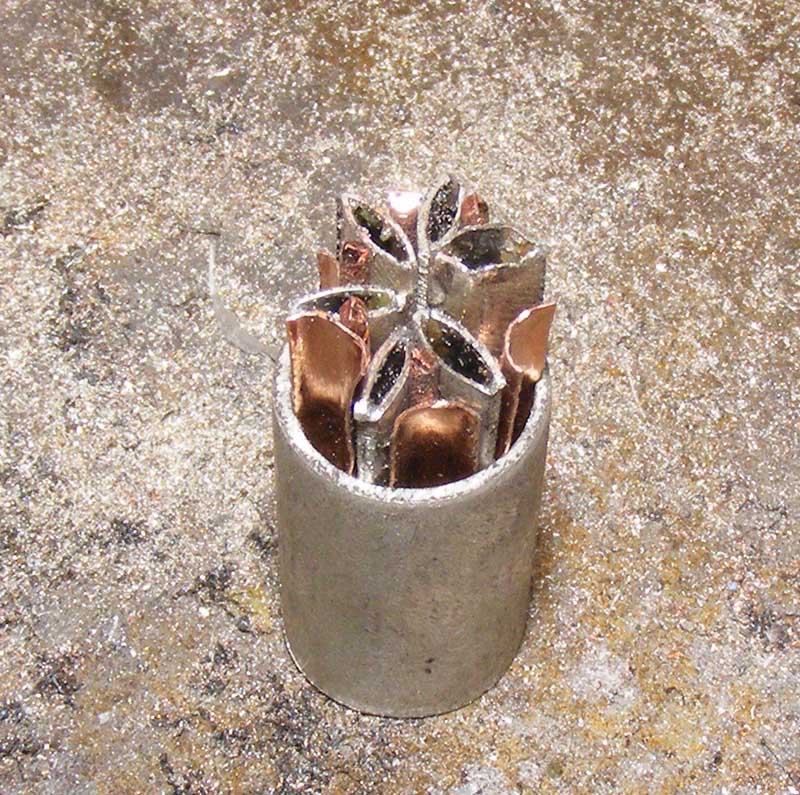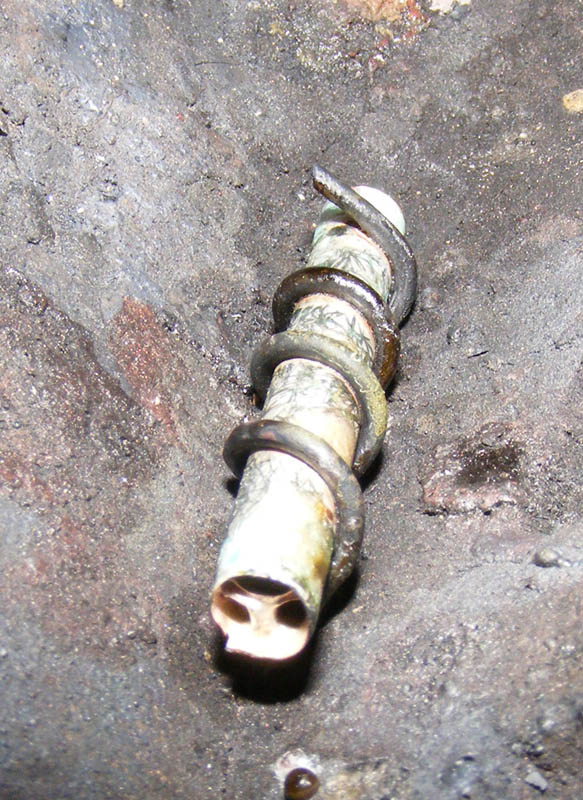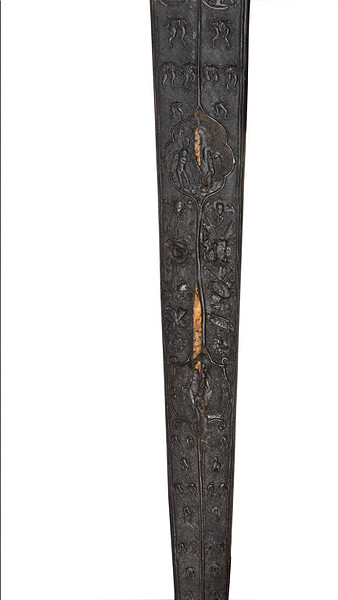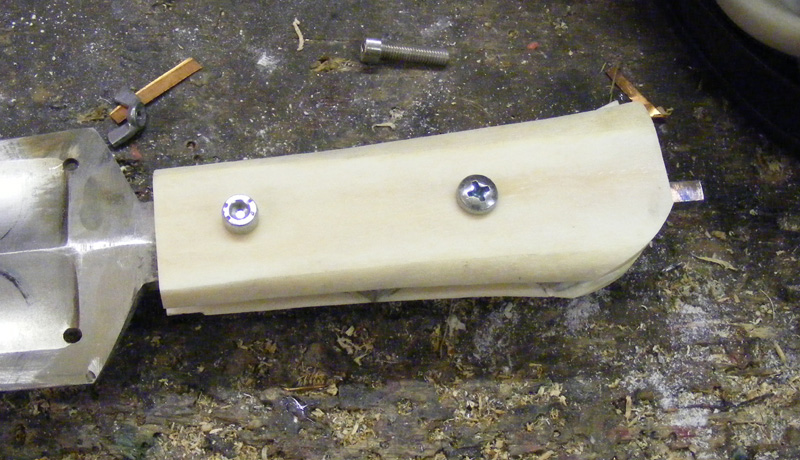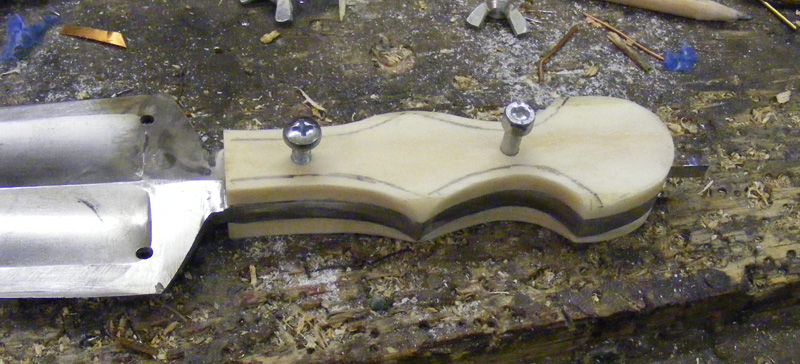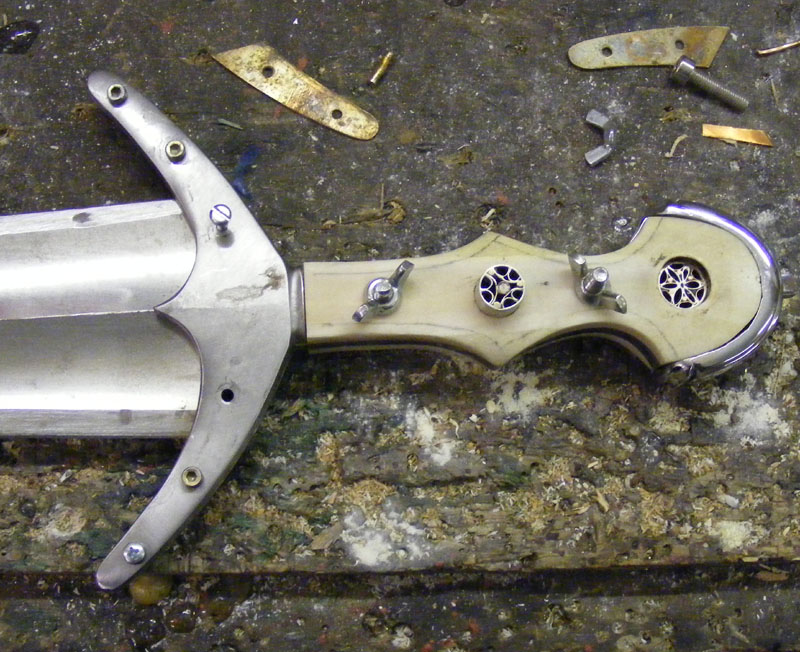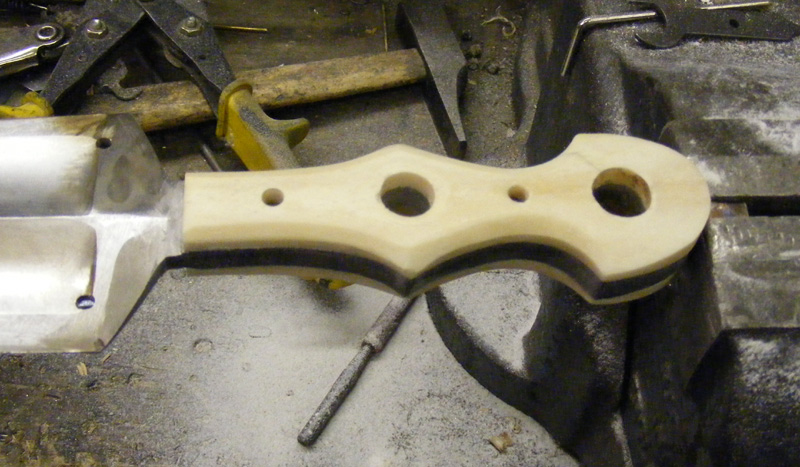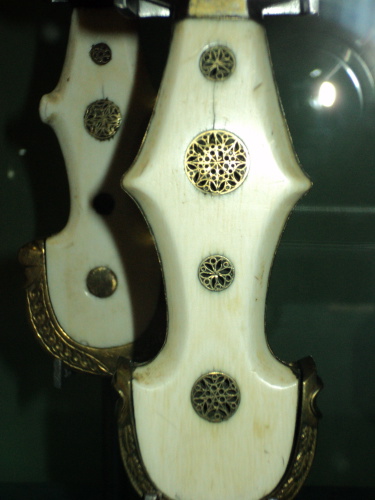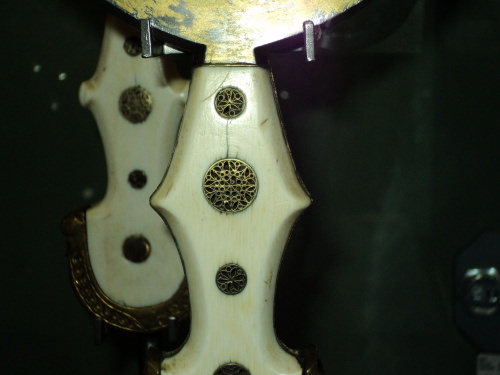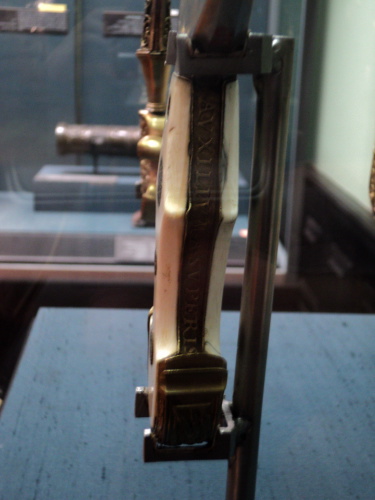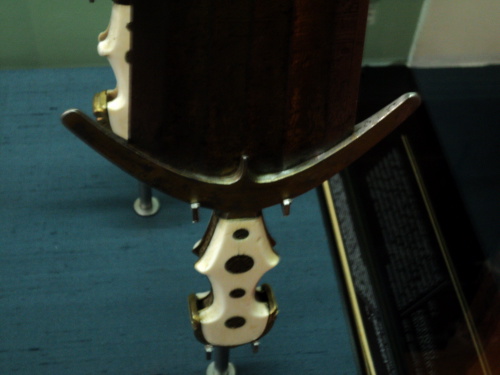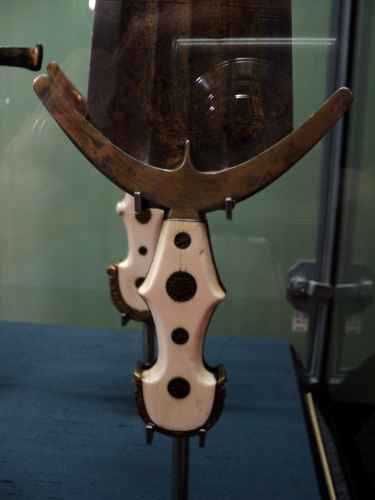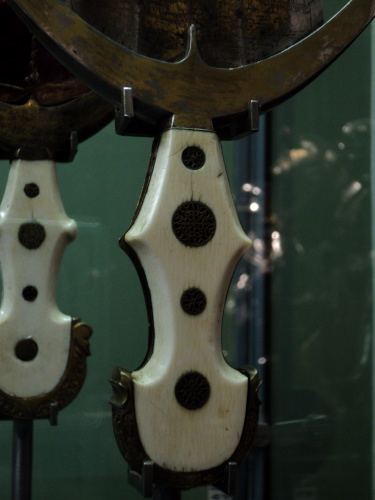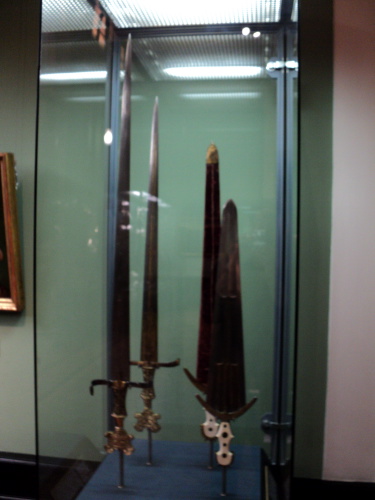I have found that posts from makers that show the work in progress are very interesting and so I will try and do that with this comission I have started on; not least because it is quite an unusual piece and has a fair set of nasty technical challenges that will be interesting for me and so hopefully for you.
Early in the year a client came to me looking for a cinquedea and although I have not made one before it is certainly something I have wanted to do for a long time and so leapt at the chance.
The brief for the project is to make a cinquedea with a blade based on this one from Records of the Medieval Sword but 27" inches long and the hilt is to be of a more traditional form rather than the sword hilt form, so similar to the one on the adjoining page in shape though not in construction. The guard and pommel cap are to be in blued steel, which is unusual in a cinquedea and the handle slabs in bone and the mosaic pins in silver and the peening cap, guard rivets and chape also in silver.
The blade was made by Owen Bush and is a lively piece and promises to make a lovely sword, with twin fullers each side and left from him with a large slab tang.
I drew out the handle and hilt form in paper and translated the design onto the tang slab and this was straightforward enough.
The guard is always a tricky thing on baselards and this was a bigger thicker version where you have to form the guard pieces to the blade and then flat them to meet each other well, whilst still meeting the blade well. This could have been an exercise in chasing my tail for days and so I opted to add to the silver detail by putting in a silver sheet between the guard sides and this would both provide a nice feature and ease my anticipated fitting problems and I think will work well.
The stage I have got to now is that the blade is made (by Owen), though still needs a final dressing, which there is no point on doing until the guard is fully made and fitted as I have to keep sliding it up and down the blade. The guard is roughed out and it is preliminarily fitted and a great deal of thinking is going into how to make the mosiac pins........
I should get onto the pommel cap tomorrow and then work is likely to cease for a few days but I will try to post up pictures as I do the work.
I hope you enjoy the process.
Regards
Tod
